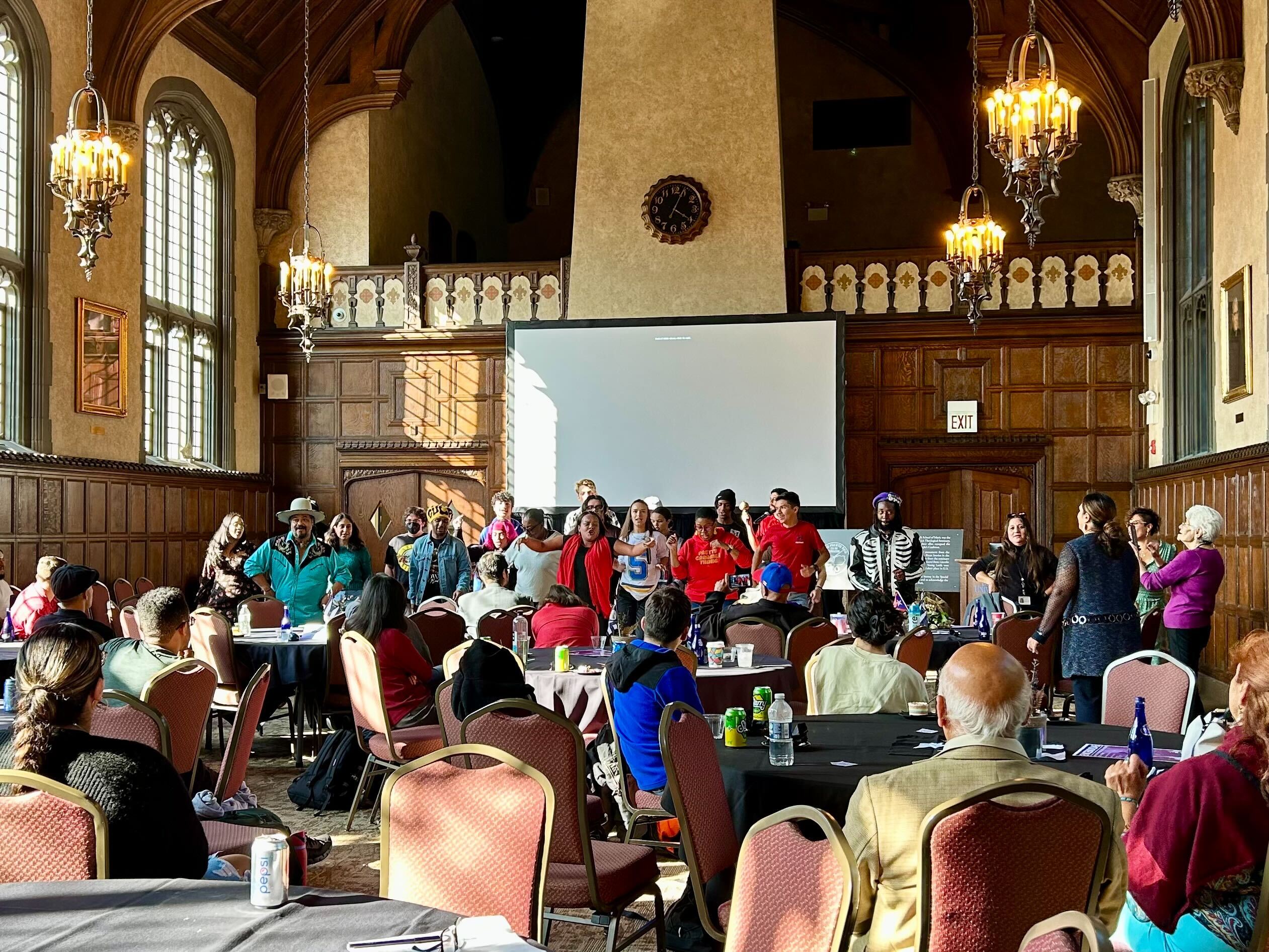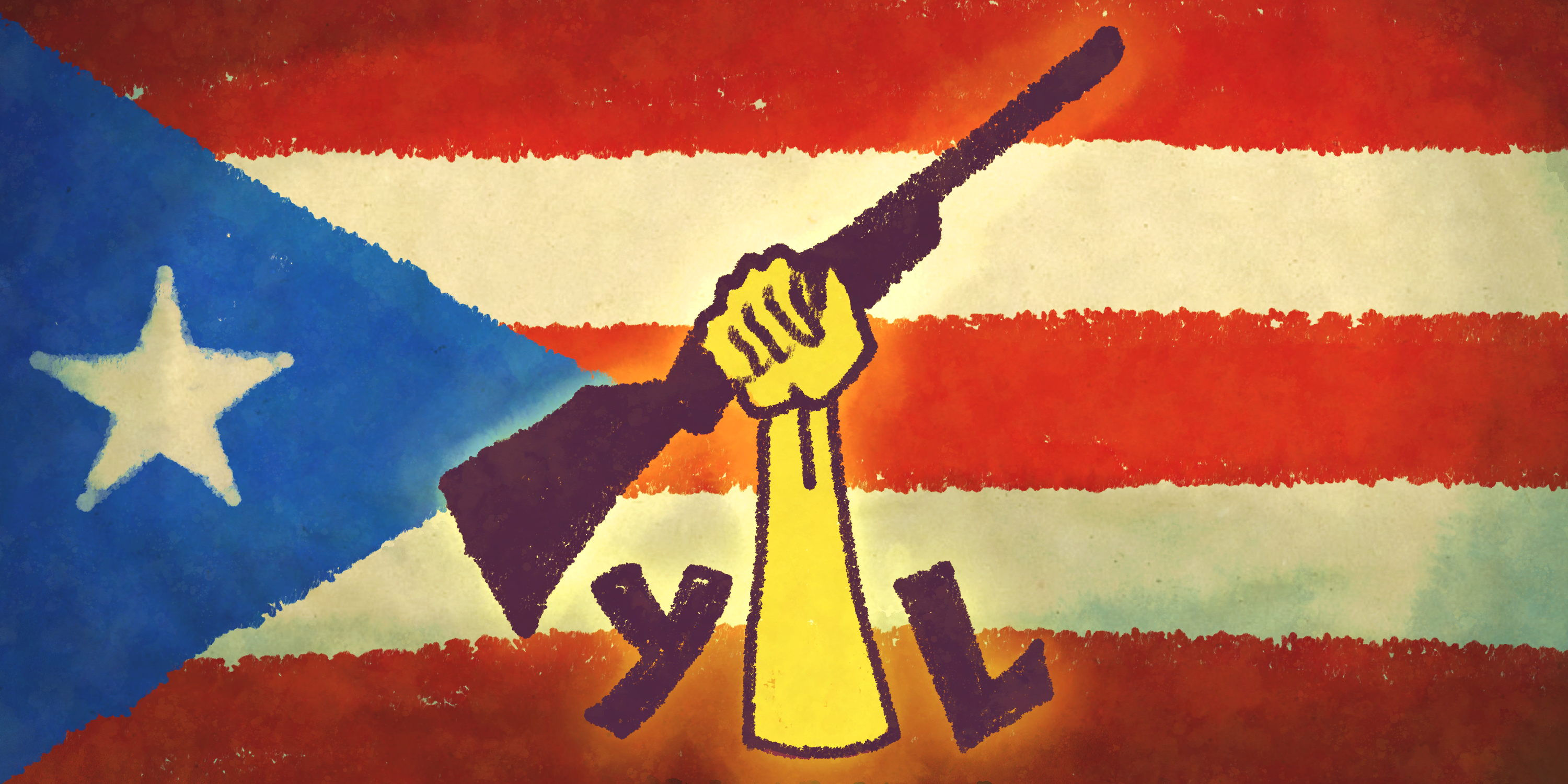The Puerto Rican community has a long history in Lincoln Park that is often forgotten.
Anyone can tell where José “Cha Cha” Jiménez is in the crowd.
He is sitting at a front table and is adorned entirely in bright purple, including a hat enameled with the phrase “Tengo Puerto Rico en mi corazón.” People come up to him during speeches and dances to shake hands, offer gratitude and get a chance to see him.
To many, Jiménez might seem no different than the many elderly men gathered at DePaul’s Cortelyou Commons. However, he is the founder of the Young Lords, a street gang-turned-activist group that originated in Chicago during the ‘60s.
Students, faculty and Young Lords members gathered together on September 18 to commemorate the organization’s 55-year anniversary. Young Lords from across the country gathered with DePaul students and faculty for a ceremony organized by Dr. Jacqueline Lazú, who is a DePaul professor in the Department of Modern Languages.
The Young Lords have a long relationship with Lincoln Park and DePaul. They started for Puerto Ricans living in Lincoln Park and Wicker Park. Many Puerto Ricans were forced to move to those neighborhoods due to gentrification, which created tension with the majority white population. White street gangs sprung up, and soon the Young Lords were founded to protect the new Puerto Rican population.
Jiménez has been a Young Lord since the age of 11. As a child, his white classmates would taunt him with racial slurs and call him “the cha-cha-cha,” a derogatory nickname referencing Caribbean music. Jiménez began to embrace his nickname and was elected as the Young Lords’ president in 1964.
The early years of the Young Lords were spent fighting with rival gangs and filled with drugs. While spending 60 days in jail for heroin possession during the summer of 1968, Jiménez began reading about the Black Panther Party’s founding and Pedro Albízu Campos, the leader of the Puerto Rican Nationalist Party. Inspired by their fights for freedom and equality, Jiménez resolved to reform the Young Lords from a street gang into a social justice group. The Young Lords turned their focus onto representation in Lincoln Park.

DePaul community gathers in the Cortelyou Commons on Monday. Photo by Annabelle Rivera
Once he was released, Jiménez got to work. On September 23, 1968, the Young Lords Organization was reinvented as an activist group. It was the 100-year anniversary of Grito de Lares, the first major uprising against Spanish rule in Puerto Rico.
During this time, former Mayor Richard J. Daley planned to turn Lincoln Park into a suburb near downtown. Rent increased by 400 percent within one month and entire blocks were bought by developers, according to the Young Patriots Organization. Buildings like firehouses and churches were being renovated or constructed in order to welcome the incoming white population who could afford the high rent prices.
Jiménez was asked to bring the Young Lords to the Department of Urban Renewal Council Meetings in September of 1968. Instead of listening in the crowd, the Young Lords calmly took over the meeting to speak directly to the council, which consisted of upper-class white people. The Young Lords proceeded to demand representation for Latinos, Black people and poor white people.
The Young Lords continued their efforts by organizing sit-ins and protests in order to speak against the growing gentrification in the area. Their efforts gained the attention of the police. In the six weeks following the founding of the group, the police proceeded to arrest Jiménez 18 times on outstanding charges. The FBI began investigating the group and tried to decipher how to infiltrate and dissolve them from the inside, according to declassified documents. This negative attention, however, did not deter the Young Lords in their fight for human rights and Puerto Rican independence.
On May 4, 1969, Young Lord Manuel Ramos was shot and killed by an off-duty cop, according to The Freedom Archives. Ramos was unarmed at the time, and the Chicago Police Department attempted to cover up his death. On May 15, the Young Lords took over the Stone Academic Administration building of McCormick Seminary, now known as the DePaul School of Music, and renamed it the Manuel Ramos Memorial Building. The Young Lords occupied it for an entire week until their demands of funding for low-income housing, a children’s center and a Puerto Rican cultural center were met. McCormick agreed to their demands and pledged to give almost $700,000 for the developments.
“The takeover was the event that firmly marked the transition of the Young Lords from a gang to a political organization,” wrote Dr. Lazú, the organizer of the DePaul Young Lords event, in an email.
Lazú has researched the Young Lords for over 20 years. Growing up in Connecticut, she idolized the New York branch of the Young Lords, which was founded during the summer of 1969.
“To the Puerto Rican community, especially Puerto Ricans born or raised in the U.S., the Young Lords were a way to understand our experiences as a part of the struggle for Puerto Rican self-determination and the U.S. Civil Rights Movement,” wrote Lazú. “The Young Lords created an inspiring identity that made us proud to be Puerto Rican, to be Afro-Boricua, to be from the inner-city, from hard-working poor and working-class families and be militant about how and what we demanded from those in power.”
Since the Young Lords’ building takeover, they have continued to fight for social justice. Most of the original members are in their 70s, but a new group called the New Era Young Lords is continuing the fight.
One New Era Young Lords member, who goes by the name Comrade Green Thumb, has been with the Young Lords for two years. He heard about applying when he spoke for a class at DePaul about his political education efforts.
“You won’t find a lot of documentaries about the Chicago Young Lords, but there’s a lot of documentation about the New York Young Lords party,” said Green Thumb. “You know, I’m grateful to be able to hear from the people who were there … I feel like it’s a great privilege.”

The event was attented by past and current Young Lord members. Photo by Annabelle Rivera
The Minister of Education for the Chicago Chapter of the Young Lords, who goes by Moe, has also spent two years with the organization.
“Our wishes for the future is connected to the hopes and aspirations of all oppressed people, which is to be free,” wrote Moe in a text.
Green Thumb and Moe were both in attendance at the DePaul ceremony, along with many of the original members and Jiménez. They were there to hear the announcement that a plaque will be unveiled to honor the Young Lords, the first historical marker dedicated to them in Chicago. It will be presented at the DePaul School of Music on May 15, 2024, the 55-year anniversary of the Young Lords’ takeover of that very building.
“I feel like [the plaque] has the potential to change the culture of our university,” wrote Lazú. “It says that we honor Latinx History. It says that we honor the history of the people who were displaced from Lincoln Park and that they matter to us now and moving forward.”
Header by Julia Hester




NO COMMENT